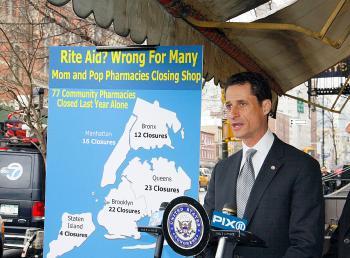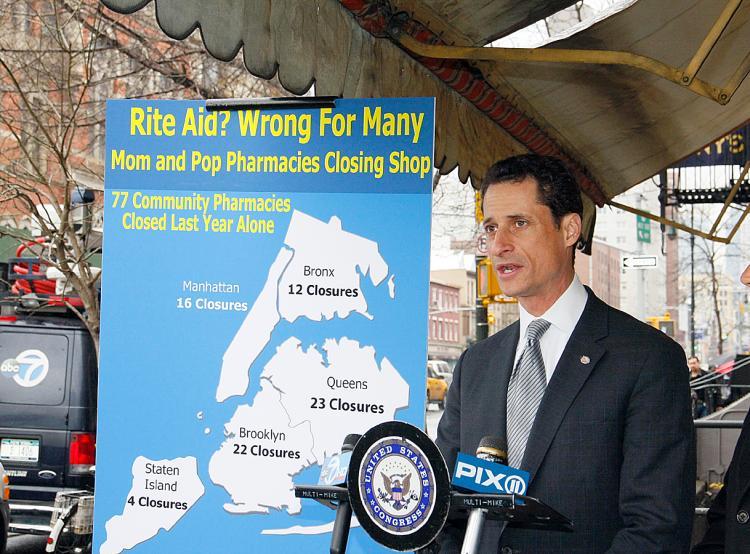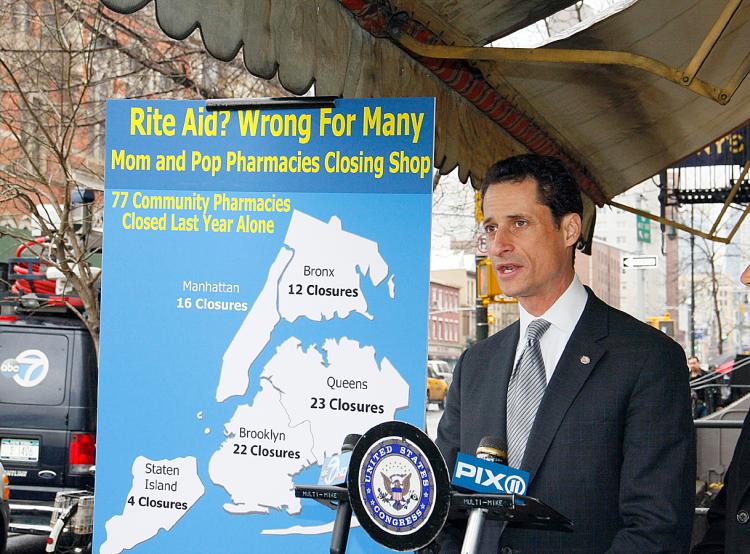Big Pharmacies Prevailing Across New York City
A study shows that 77 independent community pharmacies went out of business over the last year.

BAD RX? Rep. Anthony Weiner with a map of New York City independent pharmacies that have closed over the last year, as big chains have continued to grow. Li Xin/The Epoch Times
|Updated:


